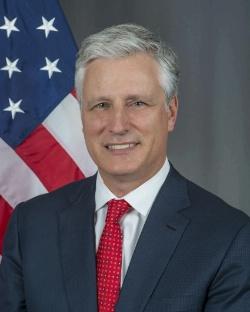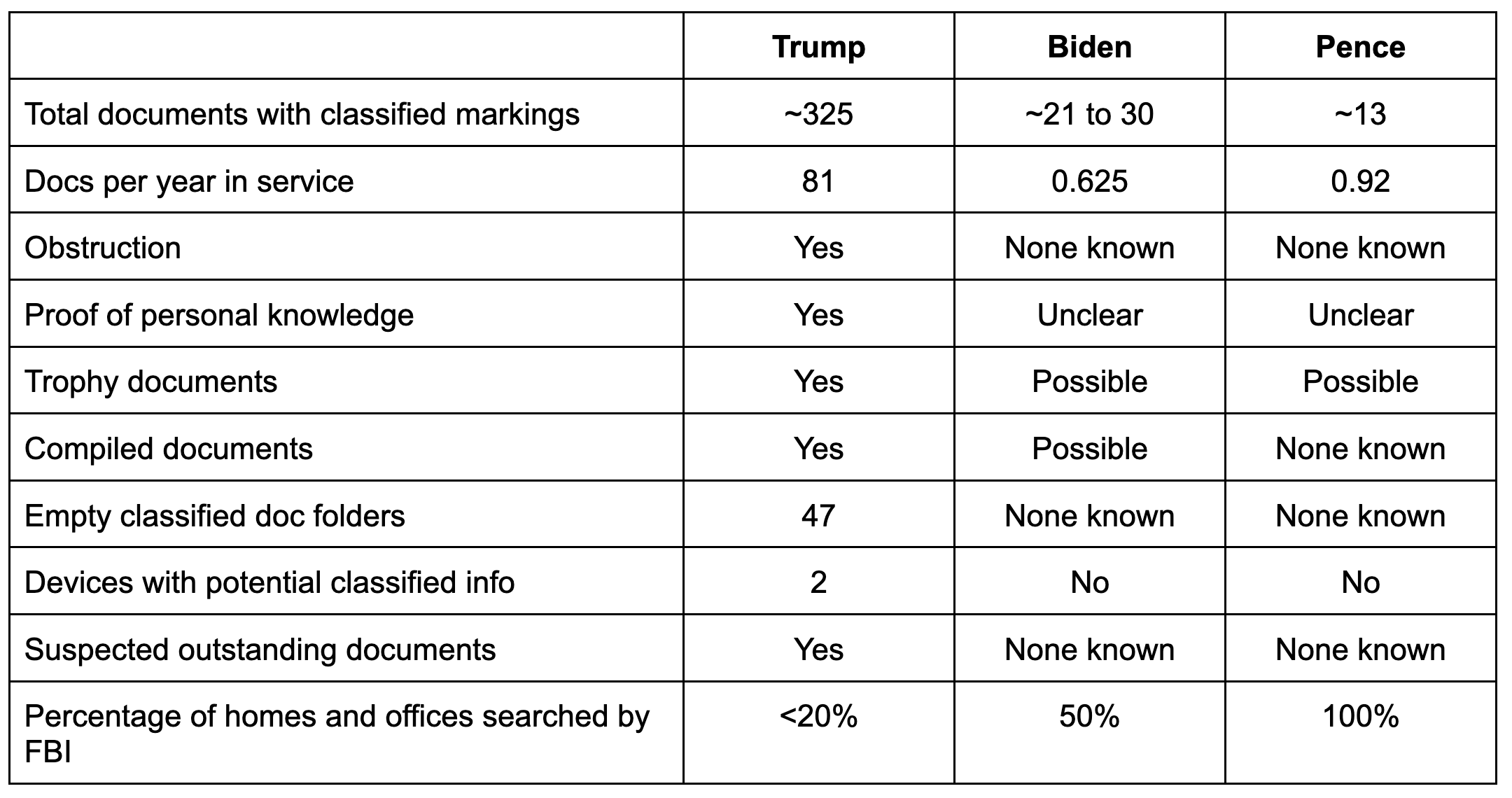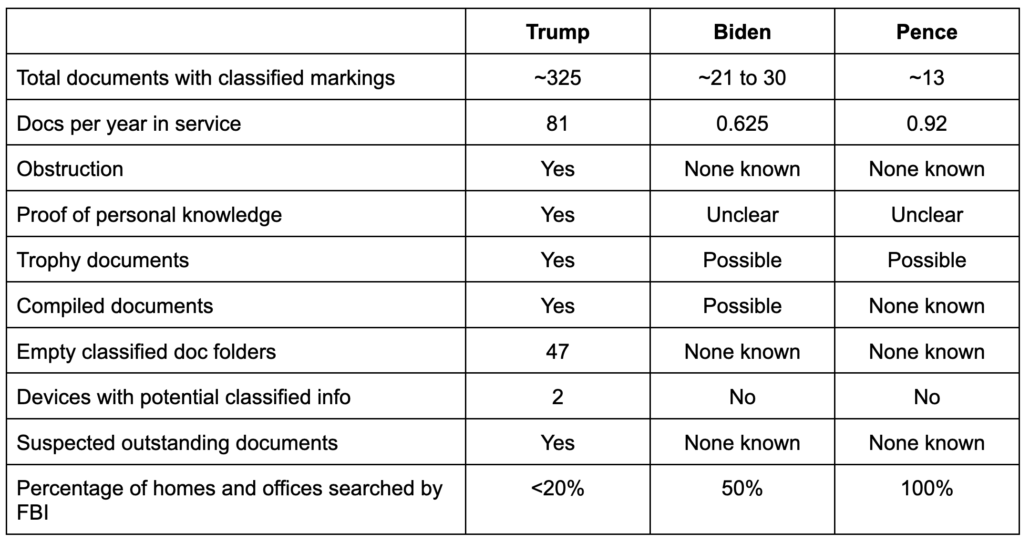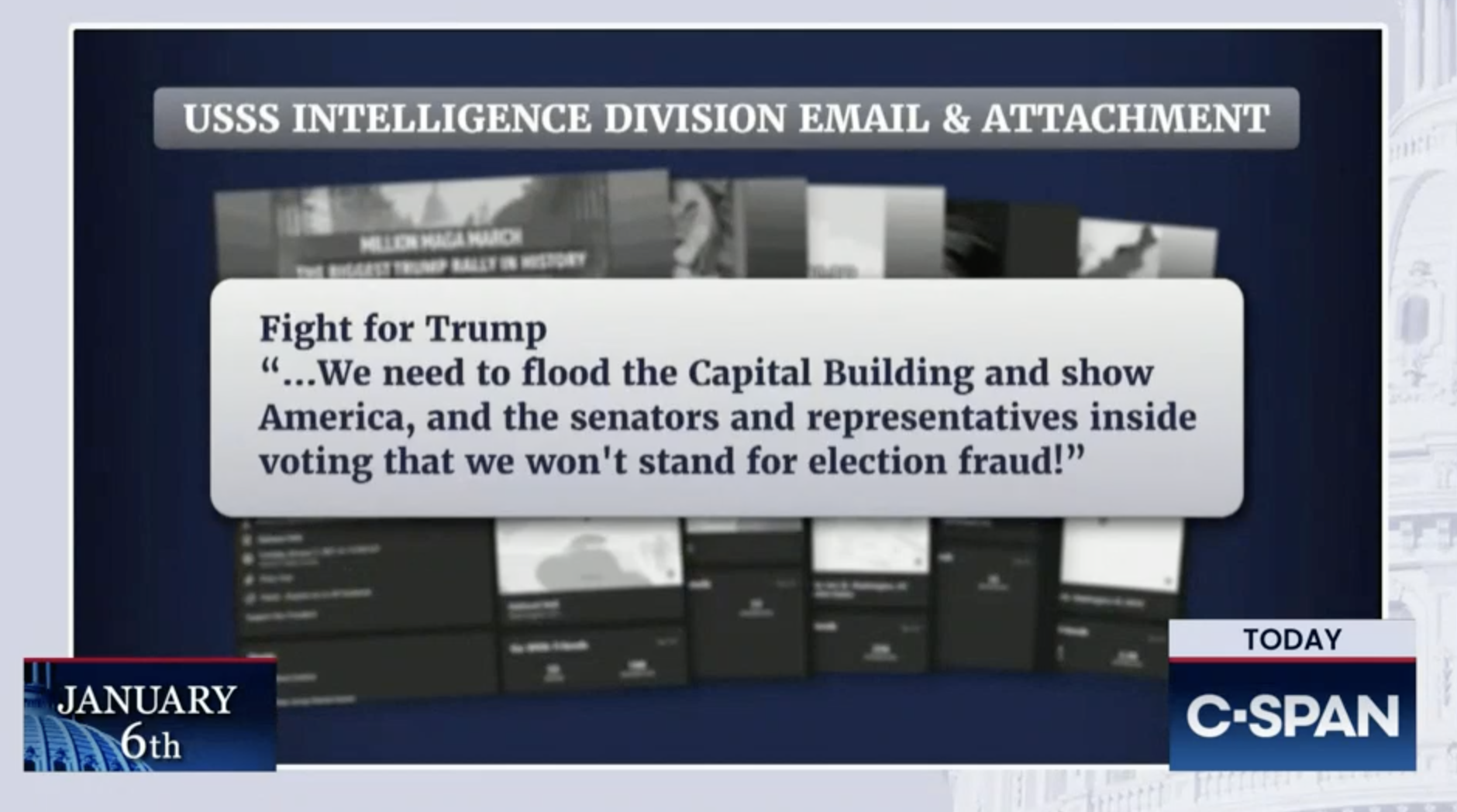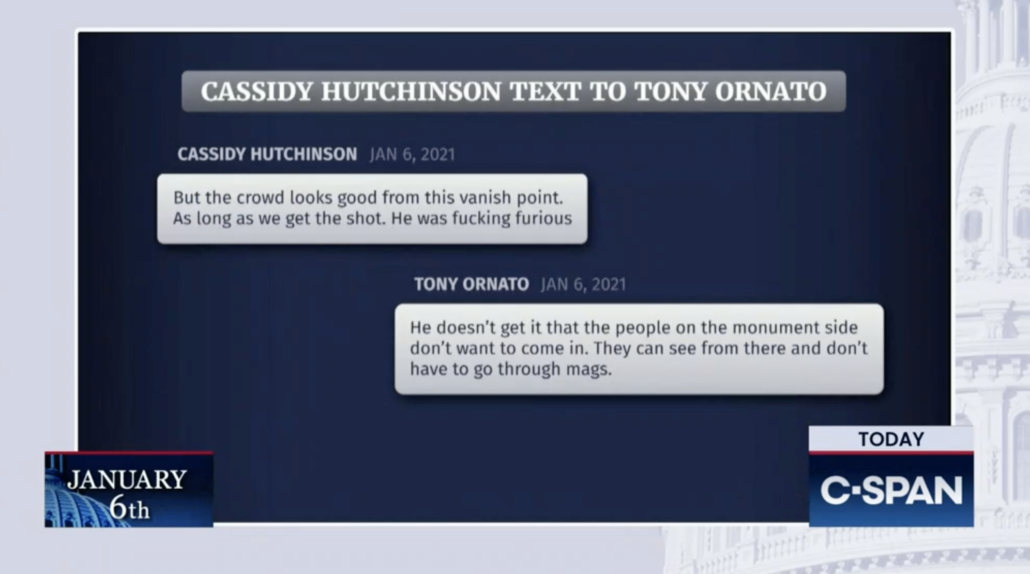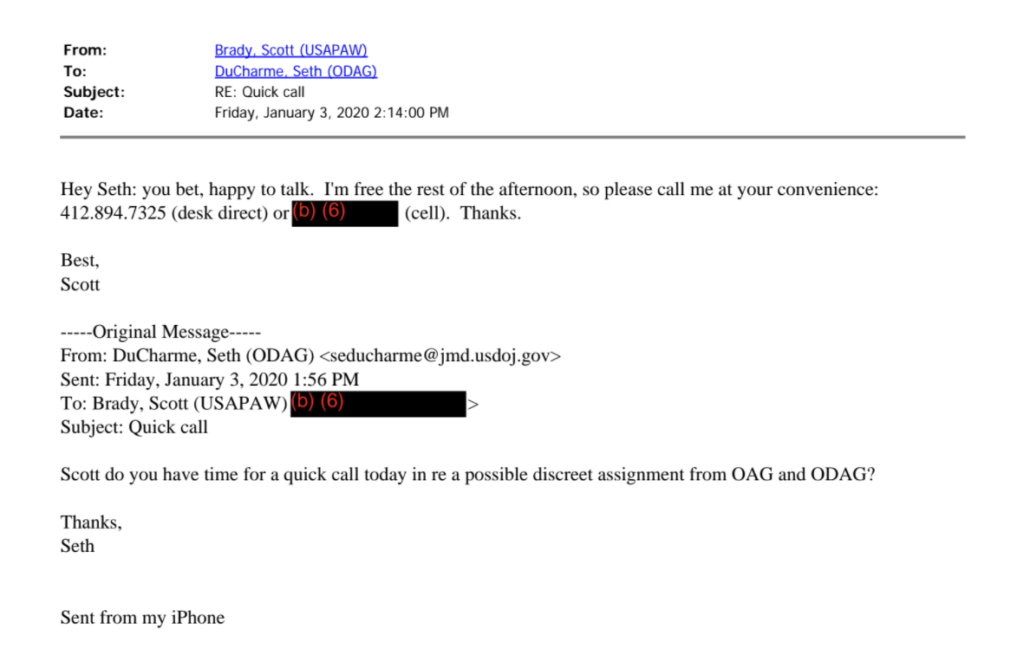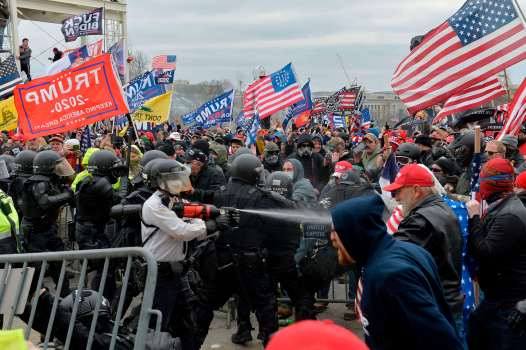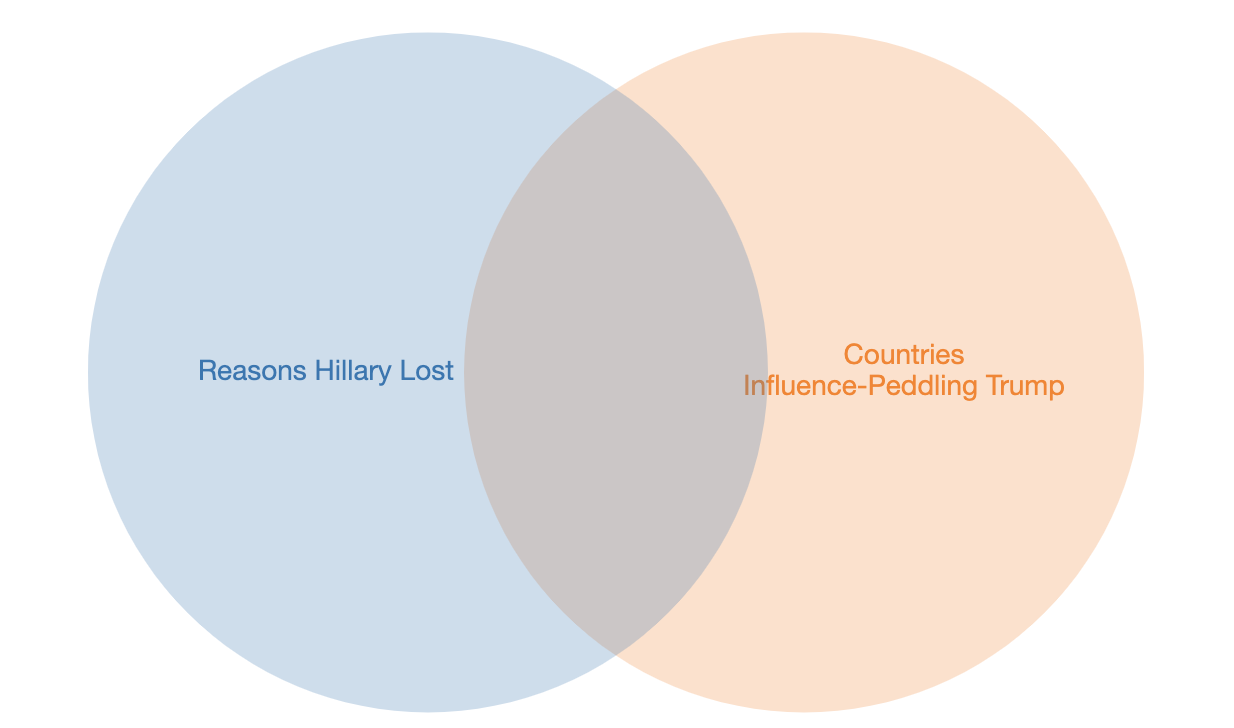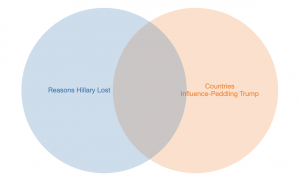Trump’s National Security Adviser Responded to an Attack on the Capitol by Sending Personal Tweets
As former National Security Adviser Robert O’Brien tells it — or told it, in his August 2022 interview with the January 6 Committee — he responded to an attack on the Capitol by sending personal tweets.
CNN reported last week that O’Brien will soon have the opportunity to tell a more credible story to both of Special Counsel Jack Smith’s grand juries, which is why I decided to read the transcript of O’Brien’s interview with the January 6 Committee.
Presumably, Smith wants to ask O’Brien about Trump’s firing of people who questioned his authority to invoke the Insurrection Act, a topic that like recent witness Johnny McEntee, O’Brien addressed in his January 6 interview. Perhaps Smith wants him to explain the plot to seize voting machines and other details surrounding the December 18 meeting, which recent witness Ken Cuccinelli addressed. O’Brien may be asked about his challenge to Cassidy Hutchinson’s credibility in his own January 6 testimony, perhaps the only person who has questioned her testimony who hasn’t since been discredited.
Given the CNN report that he would testify before both the January 6 and the stolen document grand juries, he may be asked about his knowledge of plans to take documents pertaining to topics Trump obsessed about, not just the Russian investigation (which O’Brien calls, “Russiagate hoax documents”), but also specific intelligence about Venezuela; O’Brien claims not to remember anything about the efforts to declassify documents to take.
But the most striking aspect of O’Brien’s transcript was his admitted failure to do much of anything as the Capitol was attacked.
To be fair, the appearance of O’Brien’s almost complete inaction as the Capitol was attacked stems, in part, from his own forgetfulness. He claims to remember only one interagency planning meeting in advance of January 6, even though other witnesses testified to several. He only recalls a concern about threats to the White House in advance, not the Capitol. He doesn’t recall briefing the President, the Chief of Staff, or the White House Counsel of intelligence in advance of the attack. He doesn’t recall any talk of Trump marching to the Capitol.
He recalls speaking to Mike Pence during the attack, but can’t recall most details about the conversation.
He recalls speaking to Biden National Security Adviser Jake Sullivan, who would not assume power for another two weeks. But he can’t recall whether he spoke to Chief of Staff Mark Meadows during the attack.
He recalls that his Deputy Matthew Pottinger called him and told him he had to resign, but can’t recall that he did so specifically in response to Trump’s text targeting Mike Pence.
He’s certain he made no effort to speak to the President as a mob of his supporters attacked a co-equal branch of government. He did not do so, he explained, because he was in Miami and wanted to speak to the President in person.
The story O’Brien told of his actions leading up to and on January 6 was of breath-taking dereliction of duty.
When asked specifically how he responded to learning that the President’s supporters were attacking the Capitol, he explained he sent some personal Tweets.
Q Okay. All right. So let’s talk about then what you did after receiving that information. What steps did you take now that you’re aware of this violence at the Capitol and had this conversation with the [Vice, sic] President? What did you do next?
A So I did a couple of things. I’m not sure the exact order in which I did them.
Q Okay.
A One is I put out a series of tweets on my personal Twitter account.
[snip]
Q Okay. All right. So, again, you didn’t take any action in particular response to this [Trump’s tweet].
Your tweets don’t start until a bit later, your personal tweets that you sent out.
A Yeah, I’m not sure what time my tweets came out, but I wouldn’t say it’s in direct response to this, but I did tweet that I thought the Vice President was courageous.
Q Yeah, you did.
[snip]
All right. The next one up says, “My first experience in government was serving as an intern for Senator Hayakawa of California. What the mob did to our Senate chamber today was an utter disgrace.”
Again, what motivated you to put that out? And do you remember roughly when that was?
A So, again, I don’t recall — and I don’t have a time or a date stamp on this. I think that was the first tweet that I put out on my personal account.
Q I think this is — you’re right — from your personal account, not the official NSA account.
A Correct. And I wanted to get some tweets out on my personal account because I didn’t have to go through a White House clearance process or get others involved. I wanted to try and act, you know, somewhat quickly and make sure the people that — to the extent anyone followed it or was interested, that was my view.
There were some other calls — to Mike Lee and Mitt Romney, for example. But seemingly no coordination of any response. Just tweets about the internship he had when he was 14.
There are certainly reasons to doubt his forgetfulness. At other times, he uses other tactics to avoid discussing whether he had direct contacts with Trump or anyone else of substance, like invoke Executive Privilege over his own feelings.
Q Were you frustrated, Ambassador O’Brien, with the President’s conduct on January 6th?
Mr. Larson. I think this starts to get into — invariably gets into communications with the President and impressions of the President and all that. So I’m going to assert executive privilege here.
And there’s good question of how diligently O’Brien searched for communications relevant to his testimony.
For example, there was a damning document: a draft concession speech that O’Brien wrote for Trump on December 21. O’Brien sent it from his home email account to his White House email account — because maybe his printer was out of paper, he mused.
Q 9 o’clock at night on the 21st.
A Yeah. So I was obviously at home. I probably sent it because I didn’t have a printer. I probably didn’t want to print it or didn’t have a printer at home or it may have been out of paper or something.
And this is something I did on what I considered was my own time. I thought it was — I think by this time the electoral college had already voted, and I think that the primary lawsuits that the President’s legal team had brought had been decided. You know, I can’t be certain, but I’d probably seen that on the news.
And I thought it would be — I thought I’d draft up what was in essence a concession speech, but put it in language that might appeal to the President and I thought might be something that the President could — the type of speech that the President would feel comfortable giving, but at the same time would convey the message that he conceded the election. And I thought it would be good for him and for the country.
O’Brien claims the only one he shared it with at the White House was his own Chief of Staff, not Trump’s or not Trump himself.
Q Did you share this with anyone after you sent it to your own official White House account?
A Yes.
Q With whom?
A I believe I shared it with Alex Gray, my chief of staff.
Q Your chief of staff. I see.
A Right.
Q How about Mark Meadows or the President himself?
A No. I don’t believe I did.
What’s interesting is not just that O’Brien sent it, but that he didn’t turn over an email sent from his own account in his production to the committee. The document should have been turned over to the committee by both O’Brien himself and the Archives. The committee only got the Archives copy
Q Okay. Let me show you another exhibit, this is No. 9, that is an email from your personal account to your official account. I don’t recall if this came from your production or from the Archives.
A I think this came from your production.
Q Yeah. I think that’s right. This is a record produced by the National Archives.
O’Brien wasn’t giving anything up.
And that’s why I find this exchange showing the National Security Adviser — the National Security Adviser!!! — explaining how he was doing business on Signal and WhatsApp and no, he’s not entirely sure whether all his texts got archived properly so suspect.
Q Ambassador O’Brien, how about any other messaging applications, like Signal or Telegram or WhatsApp? Did you use any of those platforms to conduct any official business when you were National Security Advisor?
A I did.
Q Okay. Which of those platforms did you use?
A I think I received some messages from people on WhatsApp and on Signal.
Q All right. And again, tell us what the circumstances would be that would trigger the use of those platforms versus the White House email account or your official device.
A So on the official devices, there was no ability, I don’t think, to put on Signal or any of the other applications.
There were some foreign ambassadors or foreign ministers that would want to get in touch with you and they tended to us Signal or WhatsApp.
[snip]
Q I’m just wondering sort of the general circumstances that would cause you to go to WhatsApp or Signal. Was it just, hey, it’s a foreign leader, so that’s the platform that he or she uses? Or would you, beyond that, use it for other reasons as well?
A Yeah. So I’m not a consumer of social media or those sorts of applications for the most part. There were some foreign leaders that asked for my cell phone number so that they could connect via Signal, because I think some foreign leaders from time to time would reach out and they were concerned about intercept and they felt there was some safety — that was their opinion — there was some safety. My opinion was different. But they wanted to communicate by Signal or WhatsApp, but it was on rare occasions.
Q I see. Okay. And beyond that, Ambassador O’Brien, would you use WhatsApp or Signal to talk to someone on a personal matter or campaign related or things that you wanted to ensure were kept off of the official government channel?
A Yeah, not that I recall. That was not my practice.
Given how little else he recalls about his job, suffice it to say this “do not recall” whether he used Signal or WhatsApp for other purposes deserves some skepticism, particularly given that everywhere he relies on the committee to pull up call records. Especially given his lackadaisical attitude about preserving whatever Signal texts he sent, at least with foreign ambassadors.
Q Got it. All right. Now, on the subject of these personal devices or accounts, did you provide all [inaudible] with the official communications from these personal accounts to the National Archives when you completed your tenure as National Security Advisor?
A So I don’t know if I had any information on those devices. I do know that when I left the job at the State Department there were some conversations I took screenshots of and I left those behind for the State Department for my files. So that was my practice there.
When it comes to the leaving as NSA, I may have had — you know, I don’t recall, I don’t recall if I screenshotted. I know I screenshotted a few things. I don’t know if they were left behind for the Archives. That would have been my practice. But again, I can’t recall.
It is undeniably true that Robert O’Brien responded to an attack on the Capitol by Tweeting, on his personal account, that Mike Pence was courageous.
But it is also the case that there’s a whole lot of forgetting going on here that looks more like a gap in communications records than anything else.
Which may be on of the biggest things for which Jack Smith would like to get O’Brien on the record.

